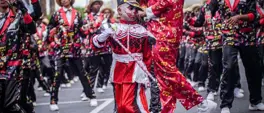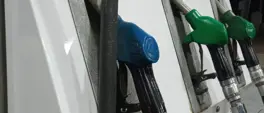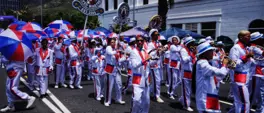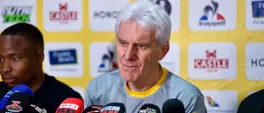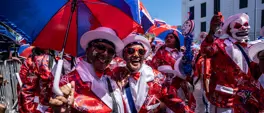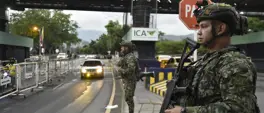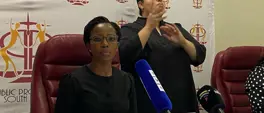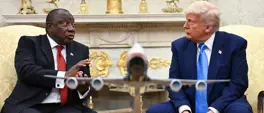MK Party officially sets internal constitution
Alpha Ramushwana
11 October 2024 | 12:30The party's highest decision-making body adopted its organisational constitution during its recent national high command meeting.
JOHANNESBURG - The Umkhonto Wesizwe Party (MK Party) has officially established its internal constitution, which sets out its code of conduct among other key factors.
The party’s highest decision-making body adopted its organisational constitution during its recent national high command meeting.
Its newly established constitution also sets out the party’s values, and principles, and outlines its standards and operating procedures.
MK Party National Chairperson Floyd Shivambu said the party’s constitution is effective immediately.
"The constitution of the Mkhonto Wesizwe Party, which will be released and published today, instructs and empowers the national officials to appoint a nation prosecutor, who is responsible for internal prosecutions on behalf of the organisation," said Shivambu.
MK Party leader Jacob Zuma is expected to address a media briefing on the outcomes of the National High Command’s recent meeting.
— EWN Reporter (@ewnreporter) October 11, 2024
The former head of state will also “also clarify the immediate way forward for the organisation”. @Alpha_Mero25 pic.twitter.com/sCPb1wmxsf
The MK party also announced plans to establish an internal disciplinary committee to hold its members accountable for violations of its code of conduct.
The party is mandated by its newly adopted constitution to appoint 11 officials to serve on the disciplinary committee.
The organisation's top brass announced the establishment of its internal constitution during a media briefing in Johannesburg on Friday.
The constitution of the MK Party states that new members will undergo a 24-month probation period.
During this time, if any member is found to have grossly violated the party’s code of conduct, top officials have the authority to terminate their membership.
Shivambu said this is to maintain organisational discipline.
"There are certain instances in which we would not need a long disciplinary process. Like when people go and disrupt meetings and produce firearms at meetings of the organisation and threaten the security of our organisation," he said.
Once the 24-month probation ends, the national disciplinary committee will assume responsibility for overseeing the discipline and conduct of non-probationary members.

